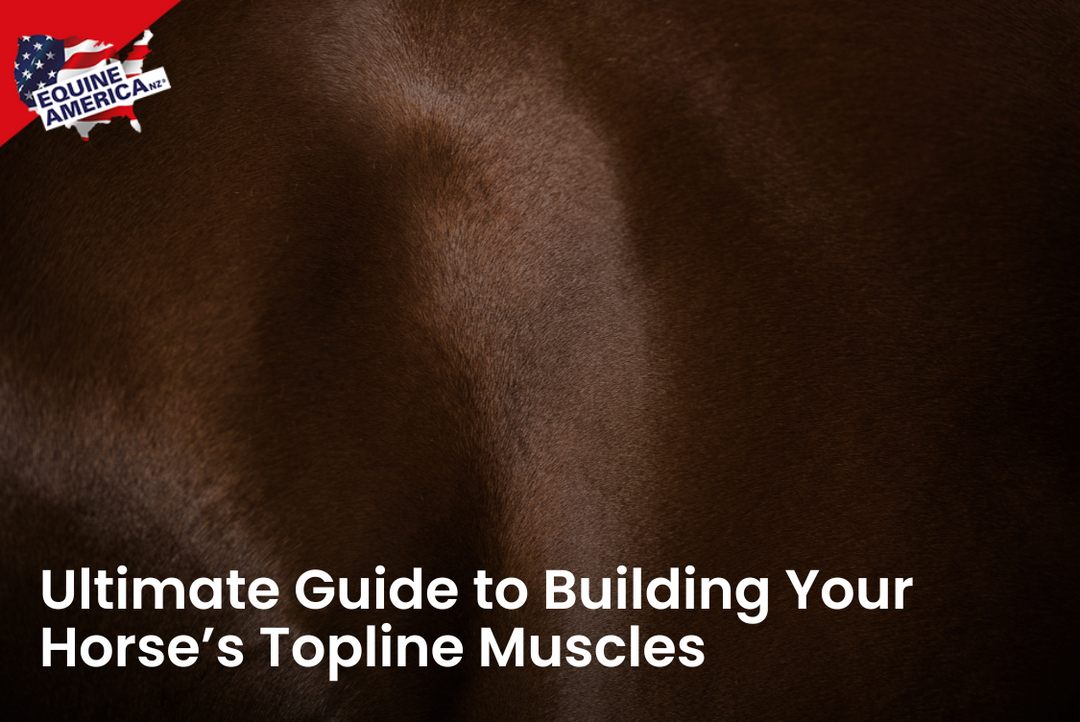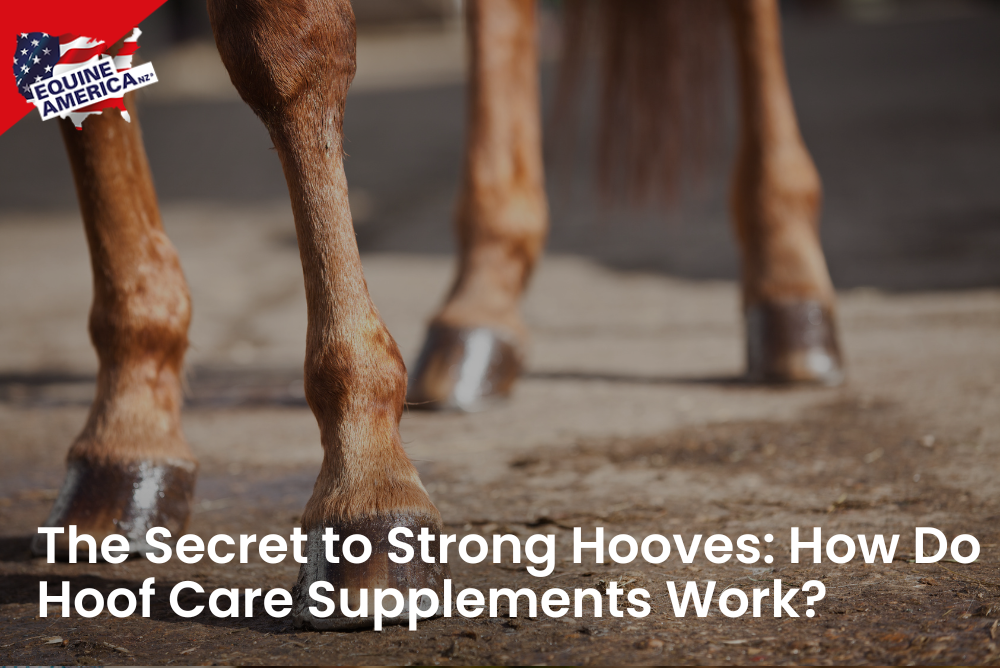Just like humans, horses require a balanced and nutritious diet to thrive and maintain optimal health. While forage and feed provide the foundation of their nutrition, certain vitamins and minerals play crucial roles in supporting various bodily functions and promoting overall well-being.
In this article, we will delve into the world of essential nutrients, exploring their importance and how they contribute to the health and vitality of your equine companion. This guide will provide valuable insights to help you ensure that your horse receives the necessary vitamins and minerals for a vibrant and flourishing life.
Vitamins and minerals play a crucial role in maintaining the health and well-being of horses. They are essential nutrients required in small quantities to support various bodily functions. Understanding the difference between vitamins and minerals is important in ensuring that your horse receives the necessary nutrition for optimal health.
Vitamins are organic compounds that are necessary for normal growth, metabolism, and overall health. They act as coenzymes or precursors to enzymatic reactions in the body. On the other hand, minerals are inorganic elements that are essential for structural and regulatory functions in the body. They are involved in processes such as bone formation, muscle contraction, and nerve transmission.
Proper vitamin intake is essential for the overall health and well-being of horses. Here are some of the key vitamins that horses require:
Minerals are essential for maintaining the overall health and well-being of horses. They are involved in numerous physiological processes and are crucial for the proper functioning of various systems in the body. Here are some vital minerals that horses require:
Proper vitamin and mineral intake is crucial for maintaining the health and well-being of your horse. While forages and concentrates provide a significant portion of essential nutrients, there are instances where additional supplementation may be necessary. Here are some tips to ensure your horse receives adequate vitamins and minerals:
Certain vitamin and mineral deficiencies can have detrimental effects on your horse's health. Here are some common deficiencies and signs to watch out for:
Providing your horse with essential vitamins and minerals is vital for maintaining their overall health and well-being. A balanced diet, proper feed analysis, and targeted supplementation can help ensure your horse receives the necessary nutrients to thrive. Monitoring for common deficiencies and being aware of the signs to look out for will enable you to address any nutrient imbalances promptly.
When it comes to sourcing high-quality supplements for your horse, Equine America NZ is a trusted name in the industry. With our commitment to excellence and dedication to equine health, we offer a range of premium products designed to support your horse's nutritional needs. Whether you're looking for vitamin supplements, mineral blends, or specialised formulas, Equine America NZ provides reliable options to enhance your horse's diet.
In this article, we will delve into the world of essential nutrients, exploring their importance and how they contribute to the health and vitality of your equine companion. This guide will provide valuable insights to help you ensure that your horse receives the necessary vitamins and minerals for a vibrant and flourishing life.
Understanding Vitamins And Minerals
Vitamins and minerals play a crucial role in maintaining the health and well-being of horses. They are essential nutrients required in small quantities to support various bodily functions. Understanding the difference between vitamins and minerals is important in ensuring that your horse receives the necessary nutrition for optimal health.
Vitamins are organic compounds that are necessary for normal growth, metabolism, and overall health. They act as coenzymes or precursors to enzymatic reactions in the body. On the other hand, minerals are inorganic elements that are essential for structural and regulatory functions in the body. They are involved in processes such as bone formation, muscle contraction, and nerve transmission.
Essential Vitamins For Horses
Proper vitamin intake is essential for the overall health and well-being of horses. Here are some of the key vitamins that horses require:
- Vitamin A: Vitamin A plays a crucial role in vision, growth, immune function, and reproductive health. It is found in green leafy vegetables, carrots, and fortified feeds.
- Vitamin D: Vitamin D is important for calcium absorption and bone health. Horses can naturally produce vitamin D when exposed to sunlight. However, supplementation may be necessary for horses with limited sunlight exposure.
- Vitamin E: Vitamin E is an antioxidant that helps protect cells from damage. It is vital for muscle function, immune support, and nerve health. Good sources of vitamin E include fresh pasture, hay, and fortified feeds.
- Vitamin C: While horses can synthesise their own vitamin C, supplementation may be beneficial in times of stress or illness. Vitamin C is involved in collagen synthesis, immune function, and antioxidant protection.
Vital Minerals For Horses
Minerals are essential for maintaining the overall health and well-being of horses. They are involved in numerous physiological processes and are crucial for the proper functioning of various systems in the body. Here are some vital minerals that horses require:
- Calcium: Calcium is essential for the development and maintenance of strong bones and teeth. It also plays a role in muscle function, nerve transmission, and blood clotting. Good sources of calcium include legumes, alfalfa, and some fortified feeds.
- Phosphorus: Phosphorus works together with calcium to maintain bone health. It is also involved in energy metabolism, DNA synthesis, and acid-base balance. Horses can obtain phosphorus from forages, grains, and commercial feeds.
- Magnesium: Magnesium is necessary for proper muscle function, nerve transmission, and enzyme activity. It is found in grass, legumes, and some grains.
- Iron: Iron is important for the formation of hemoglobin, which carries oxygen in the blood. Horses can get iron from forages and some grains. However, excessive iron intake can lead to imbalances and should be carefully managed.
- Zinc: Zinc is involved in various enzymatic reactions and is essential for immune function, skin health, and wound healing. It can be found in forages, grains, and some fortified feeds.

Ensuring Proper Vitamin And Mineral Intake
Proper vitamin and mineral intake is crucial for maintaining the health and well-being of your horse. While forages and concentrates provide a significant portion of essential nutrients, there are instances where additional supplementation may be necessary. Here are some tips to ensure your horse receives adequate vitamins and minerals:
- Balanced Diet: A balanced diet that includes high-quality forages, such as hay or pasture, is the foundation of good nutrition for horses. Forages provide a natural source of vitamins and minerals, including vitamin A, vitamin E, and selenium.
- Feed Analysis: Having your horse's feed analysed can help identify any nutrient deficiencies or imbalances. This analysis will provide valuable information about the nutrient content of your horse's diet, enabling you to make informed decisions regarding supplementation.
- Vitamin Supplementation: In some cases, horses may require additional vitamin supplementation. Common vitamins that are important for horses include vitamin A, vitamin D, and vitamin E. These vitamins play key roles in various bodily functions, including immune function, bone health, and antioxidant protection.
- Mineral Supplementation: If your horse's diet is lacking in certain minerals, supplementation may be necessary. Common minerals that may require supplementation include selenium, copper, zinc, and iodine. However, it's important to consult with a veterinarian or equine nutritionist to determine the appropriate type and dosage of mineral supplements for your horse.
Common Deficiencies And Signs To Look Out For
Certain vitamin and mineral deficiencies can have detrimental effects on your horse's health. Here are some common deficiencies and signs to watch out for:
- Vitamin A Deficiency: Insufficient vitamin A intake can lead to poor vision, skin and coat problems, and compromised immune function. Signs of vitamin A deficiency may include night blindness, dry skin, and increased susceptibility to infections.
- Vitamin E Deficiency: Inadequate vitamin E levels can result in muscle weakness, poor coordination, and reduced immune function. Horses lacking vitamin E may show signs of muscle stiffness, difficulty moving, and slower recovery from exercise.
- Selenium Deficiency: Selenium deficiency can cause muscle weakness, poor fertility, and compromised immune function. Horses with low selenium levels may exhibit muscle pain, poor coat condition, and decreased performance.
- Copper and Zinc Deficiency: Insufficient copper and zinc levels can impact hoof health, bone development, and immune function. Signs of deficiency may include poor hoof quality, slow hoof growth, and skin abnormalities.
Final Thoughts
Providing your horse with essential vitamins and minerals is vital for maintaining their overall health and well-being. A balanced diet, proper feed analysis, and targeted supplementation can help ensure your horse receives the necessary nutrients to thrive. Monitoring for common deficiencies and being aware of the signs to look out for will enable you to address any nutrient imbalances promptly.
When it comes to sourcing high-quality supplements for your horse, Equine America NZ is a trusted name in the industry. With our commitment to excellence and dedication to equine health, we offer a range of premium products designed to support your horse's nutritional needs. Whether you're looking for vitamin supplements, mineral blends, or specialised formulas, Equine America NZ provides reliable options to enhance your horse's diet.
Please give us a call at Equine America NZ today at 0800 440 888 to learn more or leave an enquiry.




